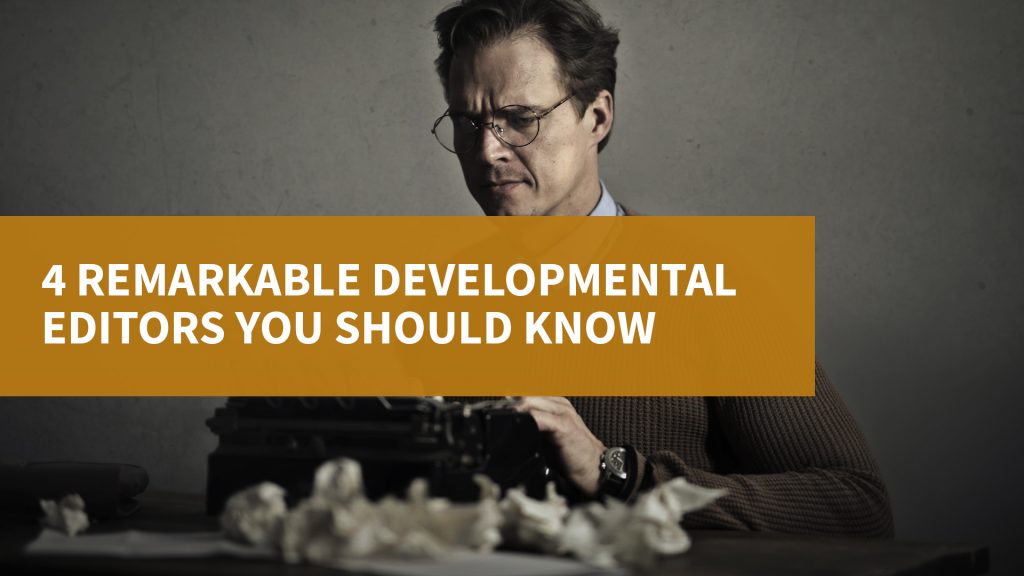4 Remarkable Developmental Editors You Should Know
Writing is all fun and games until you get to the editing stage. In the literary realm, editing is the wall that stands in the middle of the last step of becoming an established author. It is either your work go through editing and revision or submit the first draft and get rejected. You probably might want to choose the former, because they do not only provide you a bigger chance at getting published but also presents you as a professional writer. Who wouldn’t want to publish a perfectly written book that has been polished from top to bottom?
Most authors have their professional developmental editors while others edit their own work. The former is more convenient than the latter; but, either way is fine as long as the edited result is publishable. There many developmental editors in the publishing and literary platforms, some of them are working under a company while others opt to freelance. With that being said, provided below are some of the most brilliant developmental editors that you should know:
Maxwell E. Perkins
There wouldn’t be the Maxwell E. Perkins Award if there was no William Maxwell Evarts Perkins. He was popularly known as the legendary editor who discovered the talents of many icons of literature, such as Ernest Hemingway, Thomas Wolfe, Marjorie Kinnan Rawlings, and F. Scott Fitzgerald. Without his talent and passion, there wouldn’t be that much spotlight that literature can enjoy.
Perkins is the child of Elizabeth Evans-Perkins. He was born in New York City, New York on the 20th of September 1884. Before he entered the publishing realm, he became a reporter in The New York Times. In 1901, he started to be part of Charlse Scribner’s Sons’ publishing house. All of the editors in the house were keen on publishing stories of Edith Wharton and other prolific author. Perkins, on the other hand, desired to publish the works of younger authors. That’s when he discovered F. Scott Fitzgerald where they started to work together and everything led into success.
Gerry Howard
The Maxwell E. Perkins awardee Gerry Howard is one of Doubleday’s prides. He serves as the vice president and executive editor of the establishment who is known to be the editor of many remarkable authors. Quincy Jones, William S. Burroughs, Marc Maron, Chuck Palahniuk, David Foster Wallace, Paul Auster, Irvine Welsh, and Lawrence Ferlinghetti are among his clients.
His career in the publishing world started after he was hired as a promotional copywriter. Howard was assigned into Harcourt Brace Jobanovich’s textbook division. Afterward, he went into New American Library where he worked as an editorial of books that are in paperback. Before he landed on his amazing job in Doubleday in 1998, he served the publishing companies Viking Penguin and Norton for quite some time.
Julie Strauss-Gabel
American editor Julie Ellyn Strauss-Gabel is the woman that contributed to the success of many New York Times bestselling books. She is the child of a home economics educator and forensic photographer, and was raised in White Plains, New York. She went to Amherst College where she became the editor of their school newspaper called The Amherst Student. That is also the place where she met the love of her life. After graduating cum laude, she pursued her education at Harvard Graduate School of Education.
Strauss-Gabel is known to be the editor of John Green’s promising young adult books, which are Will Grayson, Will Grayson and The Fault in Our Stars. She is also known for her prolific publishing background for serving Clarion Books as an associate editor, Hyperion Books as editor, and Dutton Books as both editor and publisher.
Greg Van Arsdale
Unlike most editors, Greg Van Arsdale was an author. He started writing in 1983 and has authored several promising books including The Genesis Project series. After that, he decided to become an editor. For Greg, attention is really important when it comes to editing. One must be fully dedicated in a single manuscript before proceeding to the other, because according to him “To me, you are a person, not a number. Each project is different as each book is different. You (should) have your own voice, your own style, so instead of hammering you into a particular way of writing, I adapt to yours when possible.”
He is currently working as a freelance editor. Van Arsdale’s developmental editing and copy editing are among the services that he offers. According to Greg, “My main goal as a professional editor is not just to return a pristine manuscript ready for publishing, but also help authors become better writers.” With his over 30 years of editing experience, he is definitely becoming a more prolific editor as time goes by.

